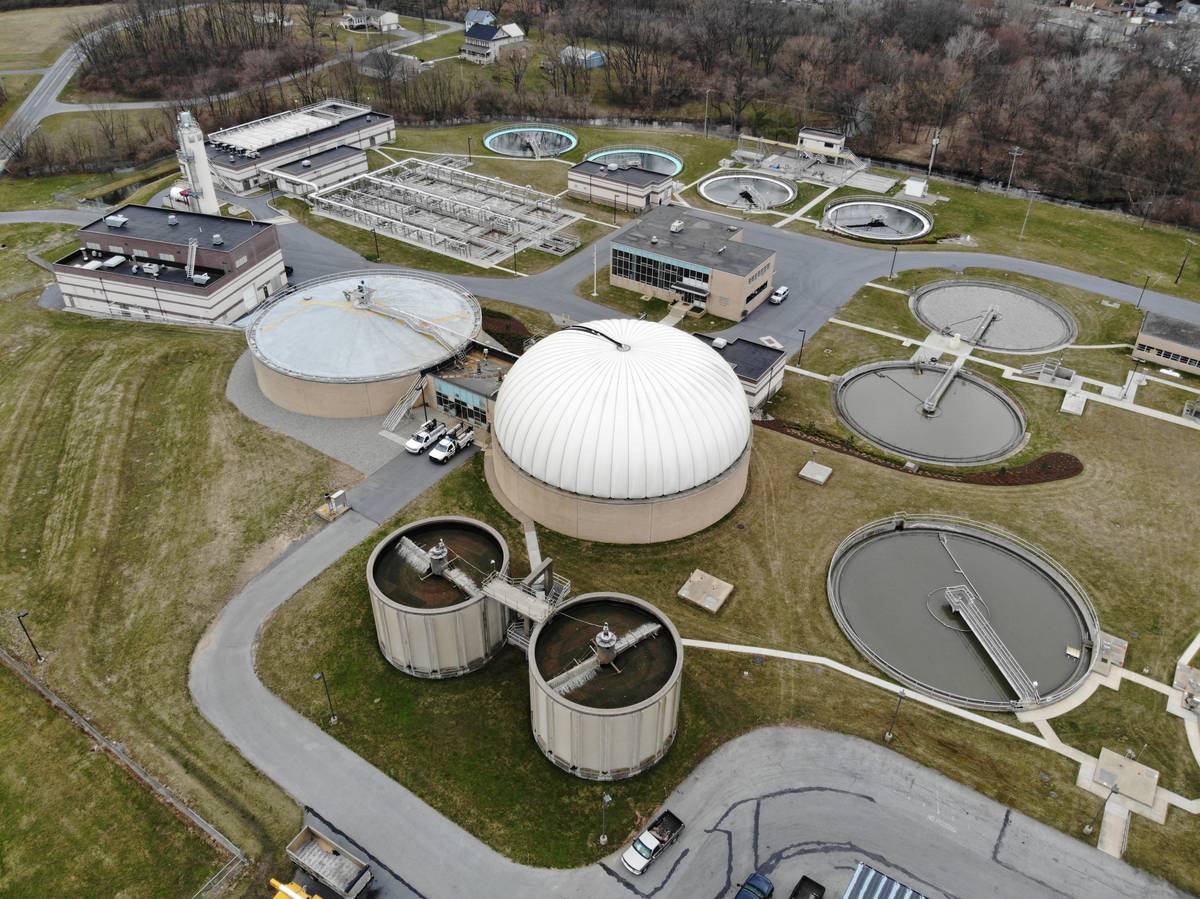This article was funded by LebTown donors as part of our Civic Impact Reporting Project.
Bids for upgrading and improving the City of Lebanon Authority’s wastewater treatment plant came in higher than expected — almost $2.8 million higher, the authority board learned Monday.
Rather than drawing on reserve funds to cover the increased construction costs, the board decided to request a loan of up to $27.9 million from PennVEST, a state Department of Community and Economic Development program that provides low-interest loans for improvements to public facilities.
PennVEST previously had approved a $22.5-million loan for the project, an amount that included construction, engineering and miscellaneous costs, according to a City of Lebanon Authority (COLA) document.
The additional $5.65 million not only covers the higher construction costs but will also allow reimbursement to COLA for design engineering costs as well as provide 10 percent construction contingencies, said Jon Beers, COLA executive director.
Related to the project, the board voted to request a pre-closing letter from PennVEST stating COLA will have the requisite financing for the project.
This letter “will give bidders an assurance that the project is funded, and we can start gathering preconstruction paperwork — bonds, insurance, submittals — and sign contracts with the bidders,” Beers wrote in an email Tuesday.
Whether or when COLA customers will see a rate increase to pay for these improvements is unknown.
“Our amortization schedule for repaying the loan will not be given to us until the project is complete,” Beers said.
The decision to request an additional loan will not cause a serious delay in the project. Completion was initially anticipated in July or August 2025. Now it will likely be completed by September or October 2025, according to Beers.
Originally built in the 1960s, the wastewater treatment plant last had a capital improvement project in 2011 in order to meet federal mandates for what it can discharge into the Quittapahilla Creek.
This time, the project involves replacements and upgrades of equipment and facilities, said Frank DiScuillo, the authority’s wastewater systems director. The project also will enable the plant to better handle rain events when flows into the system can sometimes quadruple, he added.
What happens at a wastewater treatment plant?
“We make dirty water clean,” says Frank DiScuillo, wastewater systems director with the City of Lebanon Authority.
That’s the short version of what’s involved in treating wastewater — that is, anything that goes down a drain in any building in the authority’s service area.
It is a process that is simultaneously simple and complex.
It is simple because it is a natural process relying on bacteria for decomposition. It is complex because the natural processes are accelerated and concentrated so that the water can be cleaned for reuse in a short time.
Initially, liquids are separated from solids such as food, fecal matter, paper products and chemicals. (DiScuillo said he once found three $20 bills that had entered the wastewater plant.)
Then through a system of settling, chemicals or treatment with different bacteria, pollutants such as carbon, nitrates/nitrites and ammonia are removed or converted into solids and gas which can be separated from the water.
Once the cleaned water has met federal standards, it leaves the plant and is discharged into the Quittapahilla Creek.
The remaining organic solids — byproducts of removing pollutants and chemically-treated phosphorous so it clumps together — are pumped to the digesters along with the multitudes of bacteria that have fed on the now removed pollutants.
Twice a week the authority’s lab samples the biosolids in the digesters and checks total solids, alkalinity and volatile acids, said Cora Shenk, compliance and lab manager with the authority. Those analyses, combined with monitoring of gas production, are the key parameters in ensuring treatment processes are working efficiently.
The City of Lebanon Authority Board meets at 2311 Ridgeview Road, Lebanon, on the second Monday of each month at 3 p.m. The next meeting will be Monday, Dec. 11. These meetings are open to the public and do not require registration.
Read More: Fresh cow manure revives gas production at Lebanon wastewater treatment plant
Questions about this story? Suggestions for a future LebTown article? Reach our newsroom using this contact form and we’ll do our best to get back to you.

Keep local news strong.
Cancel anytime.
Monthly Subscription
🌟 Annual Subscription
- Still no paywall!
- Fewer ads
- Exclusive events and emails
- All monthly benefits
- Most popular option
- Make a bigger impact
Already a member? Log in here to hide these messages
While other local news outlets are shrinking, LebTown is growing. Help us continue expanding our coverage of Lebanon County with a monthly or annual membership, or support our work with a one-time contribution. Every dollar goes directly toward local reporting. Cancel anytime.
























